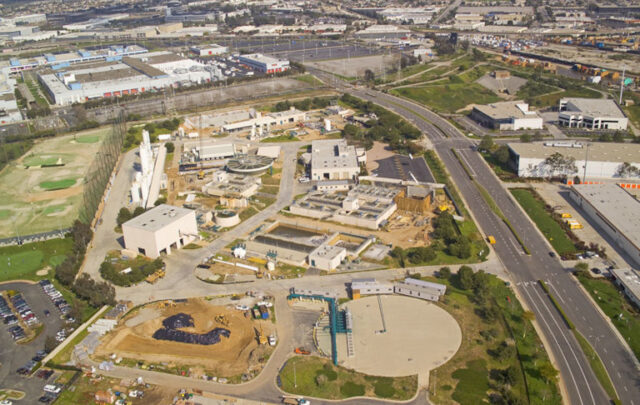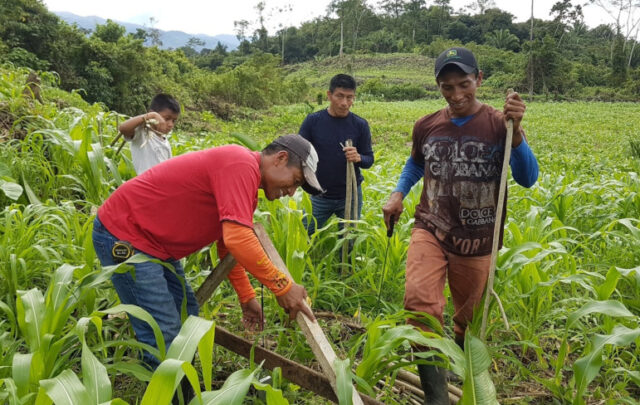Click on the headline (link) for the full text.
Many more articles are available through the Energy Bulletin homepage
A March Round-up of What’s Happening out in the World of Transition
Rob Hopkins, Transition Culture
We’ve got so many wonderfully diverse and inspiring activities to show you this month…ideas for getting people involved and having fun! And they’re here for the sharing…
In the UK, TT Luton is organising a series of Grow Your Own events to relocalise food production and consumption, with discussions and a quiz to encourage people to grow their own fruit and vegetables, while Southend-on-Sea in Transition organised a day’s introduction to Permaculture with more events lined up that you’re invited to get involved with. TT Leek is getting hold of allotments and orchards so they can plant more trees and increase production of native British apple varieties, while TT Nailsea is sharing its gardening skills with other local people to increase self-sufficiency in food production, strengthen local resilience and encourage people to think more about their carbon footprints. TT Totnes held its 4th annual seed-swap, together with the Heritage Seed Library, to improve availability of a diversity of seeds through saving and swapping of different varieties suited to specific ecologies and climates, a crucial activity for increasing future food security. TT Taunton went on a winter hedgerow hunt, a lovely way to brighten a winter’s day.
TT Horncastle is in the news again: after their recent award of £140,000 from the British Gas Greenstreets scheme, the group is now getting local playgroups to transform old clothes and fabrics into colourful draught excluders that will not only improve energy efficiency in local homes, but also help raise funds for renewable energy projects in Malian villages. Green Energy has teamed up with TT Marlow to help make the town more energy self-sufficient and resilient through the fantastic ‘Marlow 100 Solar Project’. In Leominster, Britain’s first community-owned and operated anaerobic digester for renewable energy production is being developed as part of the town’s Transition activities.
And more congratulations this month for Transitioners who have again been rewarded for their dedication: this time it’s Lucy Neal who made the front pages of the Wandsworth Guardian for her Overall Green Champion 2010 award, and then eco-friendly architect Susan Venner has been awarded the Green Design Honour, both by the Wandsworth Green Champion Awards.
TT Kingston has partnered Artgym for their Our Kingston Our Future project, which will bring together 300 people from two generations (19-25 and over 55) to share their experiences of living in Kingston and create an inspiring vision of how to make Kingston a more liveable place for people and environment that they can share with the world. It’ll all be filmed to make a documentary that celebrates the town. TT Tooting is busily preparing for their colourful Trashcatchers Carnival, and for a glimpse of what’s in store, see the picture at the start of this post.
TT Lewes hit the Independent on Sunday as being an illustration of the ‘slow and steady’ approach to beating climate change as opposed to campaigners’ ‘big and bold’ approach. TT Portobello has raised funds for three new project workers, focusing on food, energy and overall project management. TT Dorchester is the first town in Dorset to pick up the old tradition of ‘Green Drinks’, an event that started in London in 1989 and is now a regular activity in many towns and cities. Let’s hope they start a trend for wider Dorchester – and for other TT groups? Drinks and a chat about environmental issues sounds like a great way to spend an evening…
(9 Mar 2010)
Transition on ‘One Planet’ on BBC World Service
Rob Hopkins, Transition Culture
Earlier this week I did an interview for BBC World Service’s ‘One Planet’ programme, which you can now hear at their website here or download the podcast here. A very enjoyable experience, it is not every day that the BBC buys you soup and pays for it in Totnes Pounds!…
(19 Feb 2008)
Transition Sunshine Coast delivers EDAP
Rob Hopkins, Transition Culture
Transition Sunshine Coast is very pleased to announce they have delivered their Energy Descent Action Plan (EDAP) to the Sunshine Coast Regional Council. The Sunshine Coast EDAP covers the entire region of the Sunshine Coast located in Queensland, Australia which has a population of 330,000+ and covers an area of more than 3100 square km.
Written by a small yet committed group of locals and facilitated by Transition Sunshine Coast founders Sonya Wallace and Janet Millington, the plan is the first step in creating opportunities for bottom up, top down cooperation between communities and council in response to peak oil and climate change.
“We’re so pleased to be able to deliver our EDAP to a receptive council. We’ve been working hard to build relationships within the community and with local government by raising awareness about the need to prepare for peak oil and the impacts of climate change and it seems that hard work has paid off,” Sonya Wallace said.
“Our progressive council recognises the need for community partnerships and embraces the EDAP and Transition Initiatives to further their sustainability objectives. This living document is now informing council policy,” Janet Millington said. The plan delivers almost 400 positive actions, community projects and doable solutions for individuals, households, neighbourhoods, communities, businesses, regions and governments to take to prepare for a more resilient future.
Following the Transition Town model and the Kinsale EDAP, the Sunshine Coast EDAP identified and considered a wide range of areas that will be affected by energy descent such as;
food supply, water, energy, waste, infrastructure, transport and mobility, built environment and housing, communication, health and wellbeing, formal education systems and reskilling of the community, employment and economics, community governance, land stewardship and biodiversity and emergency preparedness in the context of energy descent.
The actions were delivered to the region’s Energy Transition Project Reference Group, formed in 2009 by council and with Transition Town representatives on board along with national climate change experts, ASPO representatives, energy experts, councillors and council staff, the group will create an Energy Transition Policy for the region in response to peak oil and climate change to be finalised by June 2010.
Transition Sunshine Coast will now begin the process of delivering the document to Transition Towns within the region and Transition Town Eudlo’s EDAP will be the first of many local EDAPs to be created within the regional one. Transition Sunshine Coast will also endeavour to distribute their EDAP through the international Transition Network and add it to the steadily growing e-library of information available to other groups around the world.
For further information contact [email protected]
(19 Feb 2008)
“Genuine resilience results from expanding the human footprint”. Discuss
Rob Hopkins, Transition Culture
 There have been critiques of Transition in the past, such as the Trapese Collective’s one, or other more ranty online versions, usually from the very deep green Left, who argue that unless it can get rid of capitalism/economic growth [insert personal pet political issue here] first then it is unforgivably naive. It was interesting therefore, at EcoBuild 2010 at Earl’s Court on Tuesday, as part of a session called ‘Sustaining Transition Initiatives’, to hear a talk by Alastair Brown of mantownhuman give a talk attempting to put the intellectual boot into Transition. It was coherent, articulate, well illustrated … and utterly mistaken.
There have been critiques of Transition in the past, such as the Trapese Collective’s one, or other more ranty online versions, usually from the very deep green Left, who argue that unless it can get rid of capitalism/economic growth [insert personal pet political issue here] first then it is unforgivably naive. It was interesting therefore, at EcoBuild 2010 at Earl’s Court on Tuesday, as part of a session called ‘Sustaining Transition Initiatives’, to hear a talk by Alastair Brown of mantownhuman give a talk attempting to put the intellectual boot into Transition. It was coherent, articulate, well illustrated … and utterly mistaken.
Brown was the last of 4 speakers, the previous ones having been myself, Liz Cox of nef and Mark Brown of Transition High Wycombe, who gave a great explanation of the difficulties they are facing trying to make Transition work in a commuter town. Brown’s talk was a great setting out of the cornucopian technofix school of thinking, so prevalent in architecture and planning schools, where architects can magic new cities into creation in complete defiance of the laws of thermodynamics, a la Paul Romer. There are no limits to growth, he argued, we will never run out of energy, we always step off onto a better one.
The problem is you see that environmentalists have so convinced themselves and others that the game is up that they are stifling the very creativity that a bright, shiny new future depends on. The idea that the world can have “too much growth” he argued, is based on a very pessimistic view of humanity. As ’solutions’ all that Transition and the green movement offer is censure and restriction, making people feel guilty, whereas what we need is a more expansive point of view. He said that we need to be building new cities based on creativity, not a vision of the world where people are isolated on their allotments (!). It was a staggeringly uninformed presentation, with no sense of limits to growth, and with a distinct lack of the word that, alongside energy scarcity and climate change, make his gleaming new vision so unattainable, debt.
The chestnut however came at the end of his talk, one line of text that topped a slide with images of gleaming new cities and an industrial urban future. “Genuine resilience results from expanding the human footprint”. This remarkable piece of illogic summed up the whole talk… I am still trying to figure it out. Following his talk I got to give a short response, which challenged most of the points he had raised. The first question from the audience however provided a more succinct and pertinent critique of this critique. A slow speaking, Russian-sounding gentleman said “I think you have great guts coming here with such bollocks”.
So anyway, here’s your homework. “Genuine resilience results from expanding the human footprint”. Discuss.
(4 Mar 2010)





